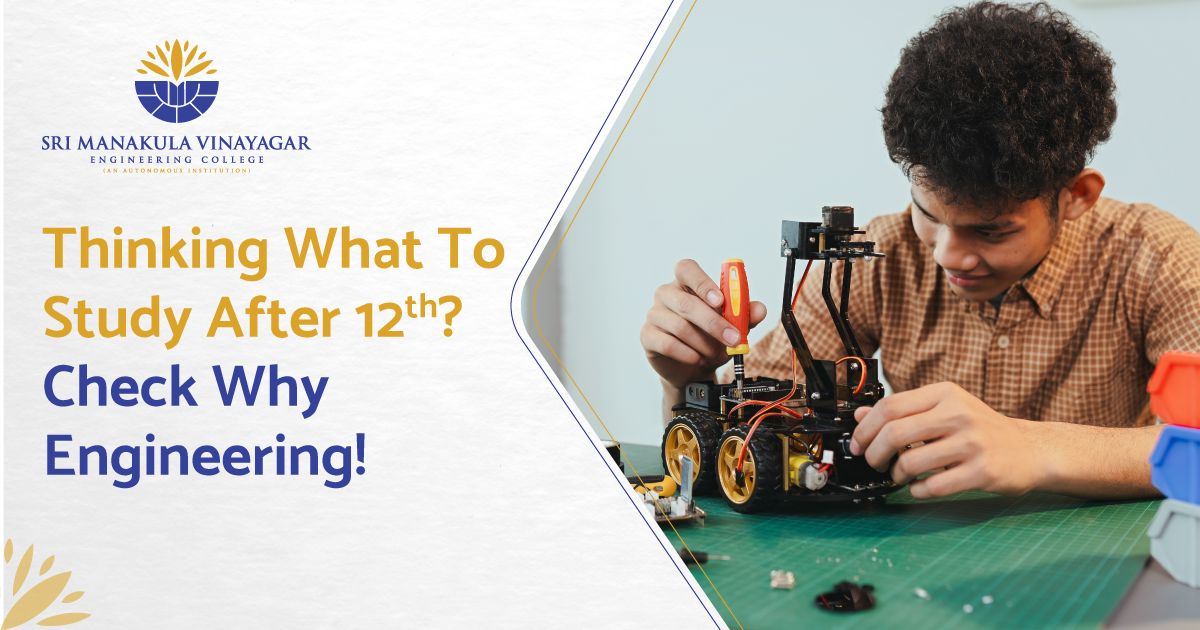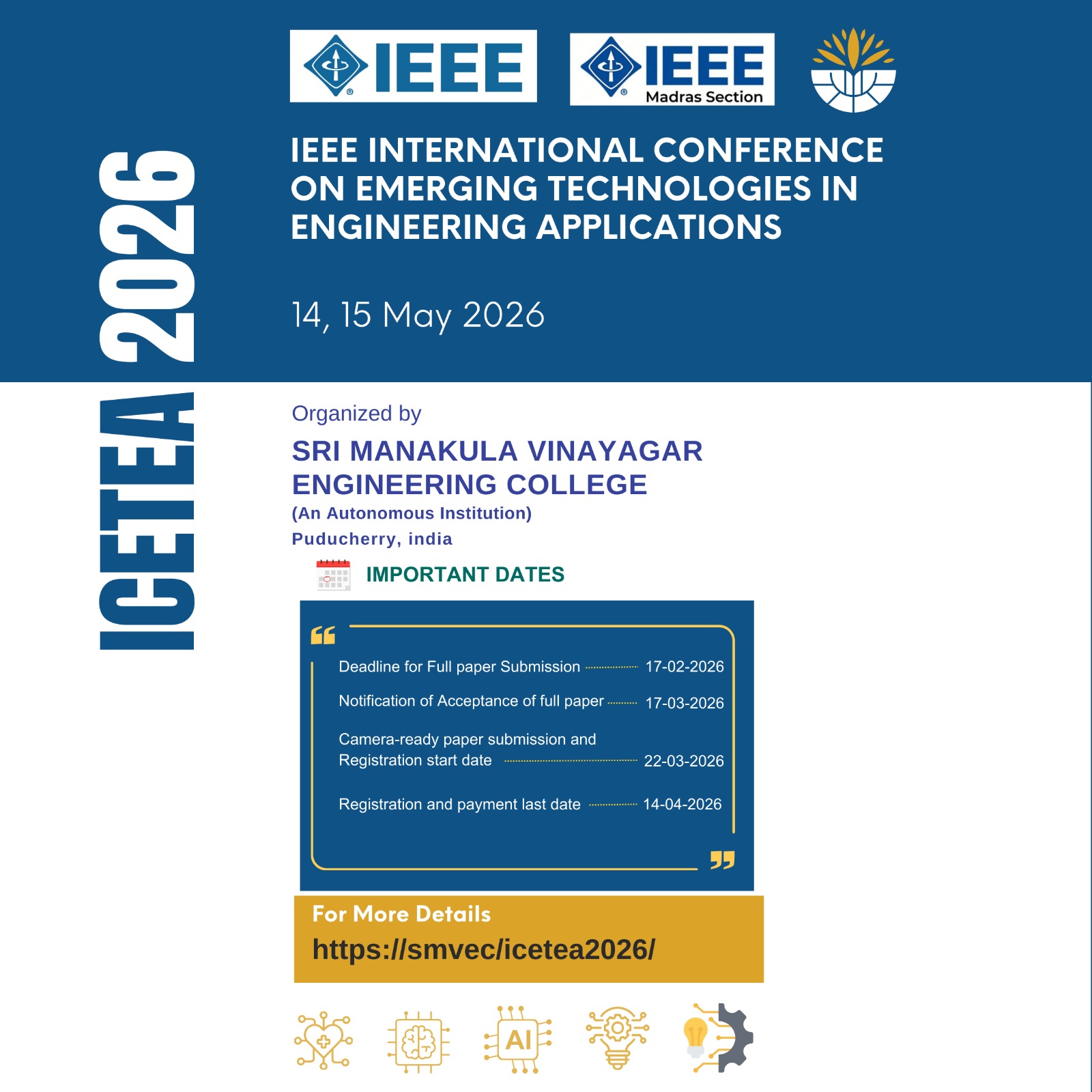Everyone has that question in mind in the middle of education: What to study after 12th grade, or what courses should be pursued? This question will predetermine your generational and career prospects and the opportunities in your life.
Engineering looks even more appealing in the age of exponential technological growth and handling complex issues, but it is also a good choice for sympathetic, innovative, and enterprising students.
If you desire what to study after 12th and get a job where you generate returns, then study engineering!
Some of the branches of engineering that one can do after passing 12th will be discussed in this article, as well as some facts that give credence to the fact that an engineering career is superior to others.
Let’s get started to know in detail !
Why Does the Right Career Matter?
Selecting a subject to study once a learner has finished grade 12th is a crucial decision, as it can shape or mar one’s destiny in one’s personal life.
For an action to occur under this process of making an informed decision, one must consider several things, including interests in a particular profession, capabilities, and aspirations.
This will help you understand how well you are positioned to match commitment with goals, amongst other things.
In so doing, one can build oneself towards a bright future when a particular area of study forms the foundation of a specific profession.
Illustrative Professional Sector for the Candidates After the 12th
Some of the courses that a student can undertake after the 12th are as follows:
1. Undergraduate Degree Programs:
These include bachelor’s degrees in diverse fields, including liberal arts, sciences, commerce, engineering, and technology.
2. Vocational Courses:
Courses associated with the hotel industry include tourism, hotel and catering, being an air hostess, fashion design, multimedia and animation, interior design, photography, etc.
3. Professional Courses:
You can take professional Courses like law, journalism, medicine, architecture, and chartered accountancy.
4. Diploma Programs:
Diploma programs in technical fields include computer science, electronics, communication, and civil engineering.
Why You Should Study Engineering in 2024 After 12th Grade:
Let’s get to know the reason through the real stats,
- Growing Skills Shortage: The authorities stated that the demand for engineers in India will be 1. 5 million in 2024, with a rising skills gap in the artificial intelligence and data science sectors.
- High Starting Salaries: The starting salary for engineering graduates in India, especially those from IIT, is 12- 15 lakhs per annum.
- Fast-Changing Technology: “This tremendous technological shift will require health care and finance engineers to advance the global market from $136 million to $407 billion by 2027. ”
- High Employability Rates: Engineering degrees give high employability the Top IITs among Indian institutes have placed more than 90% of their students within the first 6 months of graduating.
- The Investment Bank is called Education: Engineering degree from a top Indian college. Due to the high initial salary packages and promotional aspects, they get an ROI of 400% within five years.
Career Prospects in Engineering
Engineers have many career opportunities in different areas. After completing the 12th standard, people doing engineering in college should consider a few other careers.
1. Fundamental Engineering Jobs –
Graduates can try their luck at being design engineers, project managers, quality control engineers or research and development engineers, among other similar roles, depending on the area of specialisation one studied.
2. Consulting and Advisory Services –
Consultancy projects requiring expertise within various industries are joint for many engineering graduates.
3. Entrepreneurship:
Engineers might start their own problem-solving business using their technical skills.
4. Academia And Research:
This may interest students wishing to work as professors or researchers in universities or research institutions.
5. Government And Public Sector:
Government departments/ agencies and public sector undertakings/regulatory bodies also employ employees with an engineering degree.
6. State-Level Engineering Entrance Exams:
For example, Tamil Nadu conducts TNEA, and Andhra Pradesh has AP EAMCET, which are state-level engineering entrance exams that provide admissions into all the colleges that offer engineering within each state.
How to Get Ready for Engineering Entrance Exams
Clearing engineering entrance exams requires dedicated preparation and a strategic approach. Here’s how you can prepare effectively after the 12th:
Engineering Entrance Examination Preparation
1. Understand the Syllabus
The following is a possible analysis of some topics covered in the engineering entrance exam syllabus. It will assist you in understanding the areas of focus, which means your preparation will be more focused and effective.
2. Focus on Fundamental Concepts
In addition, after completing 12th grade, they need to build up their fundamentals in physics, chemistry, and mathematics, which are crucial to further studying engineering disciplines.
3. Regular Practice
You may solve numerous practice questions and previous year’s papers, which will determine the nature of the examination; this makes your practice regular and enhances your speed and efficiency during the actual examination.
4. Seek guidance.
You can look for coaching classes to assist you or track experienced professors or mentors who could share important information through question-and-answer functions and create a study plan that meets your strengths and weaknesses.
5. Use resources.
These would be course materials, textbooks, online sources, and reference books with significant topics and exercises to practice for engineering entrance exams.
6. Time management
All the subjects should be provided equal time in a timetable that is effectively planned and implemented. Once the topics are defined, you should organise separate slots of time for each so that coverage of all the subjects does not suffer while striving for breadth of coverage.
Financial Aid and Dept. of Engineering Scholarships
Choosing what to study after 12th grade will be challenging for you and your parents in 2024. However, this has kept students from opting for an engineering course, even though it costs them some money. Scholarships and financial aid may assist students in continuing their education.
So, without further ado, let me take you through them individually!
1. Merit-Based Scholarships
Many engineering colleges and institutes provide merit scholarships for brilliant young students in the academic stream.
2. Need-Based Financial Aid
The government or the educational institution may provide needy children with financial assistance.
3. Corporate Scholarships
Different companies and organisations offer the following scholarship programs to support prospective future engineers whom these sponsors may source.
4. Educational Loans
Most banks and similar institutions offer education loans for engineering students’ study programs.
Conclusion
Choosing what to study after 12th grade will precisely dictate your future job. An engineering major has many advantages from an individual development perspective and in the workplace.
Consider your interests, strengths, and goals before making the right decisions. This will make your journey within the precincts of engineering enjoyable.
If you would like to take engineering courses, many courses are available worldwide by reputable institutions like SMVEC.
Hitherto, SMVEC has produced a near-perfect learning environment for engineers, with surroundings that favour the moulding of professional engineers.
After that, being professionally orientated, as the SMVEC Institute association wanted, you could get enough money through practical studies in engineering.
Come and join SMVEC today to create learning as a celebration!
FAQ
1. What Are the Various Engineering Specialisations After the 12th?
After completing 12th grade, common branches include computer science, mechanical engineering, civil engineering, electrical engineering (power systems and electronics), and chemical engineering. Every specialisation has opportunities and challenges that help you personalise your education towards what you feel passionate about.
2. Is engineering a good career option for the 2024 Indian youth?
Yes. In India, particularly in 2024, engineering is among the best professions. With technology advancing so fast, there is a high demand for skilled engineers in various sectors, such as IT, manufacturing, infrastructure, and renewable energy.
3. What Are the Entrance Exams for Engineering in India?
After clearing the JEE Main and JEE Advanced entrance exams, which open doorways to top-notch institutions like IITs and NITs, among others, aspiring engineers must pass specific admission tests if they want to be admitted into them. At the same time, some private universities also use their entrance exams, e.g., BITSAT for BITS Pilani or VITE for VIT Vellore.




